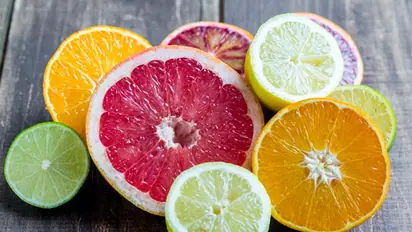Follow this diet if you have high blood pressure and keep your health on track
Published : Apr 14, 2023, 07:30 AM IST
Maintain control of your blood pressure by living a healthy, active lifestyle. The ideal diet for high blood pressure is DASH, essential to maintaining healthy blood pressure levels. Dietary Approaches to Control Hypertension is a high-blood-pressure diet eating plan specifically created to assist in controlling or treating hypertension naturally. The standard DASH diet consists of foods high in potassium, calcium, and magnesium, three essential elements that lower blood pressure (BP). Let us know some food items best for managing high blood pressure.
Explore the latest Lifestyle News covering fashion, wellness, travel, Food and Recipes, and more. Stay updated with trending Health News, fitness tips, and expert insights to inspire your daily living. Discover personalized lifestyle trends that keep you stylish and informed. Download the Asianet News Official App from the Android Play Store and iPhone App Store for everything that adds value to your everyday life.
